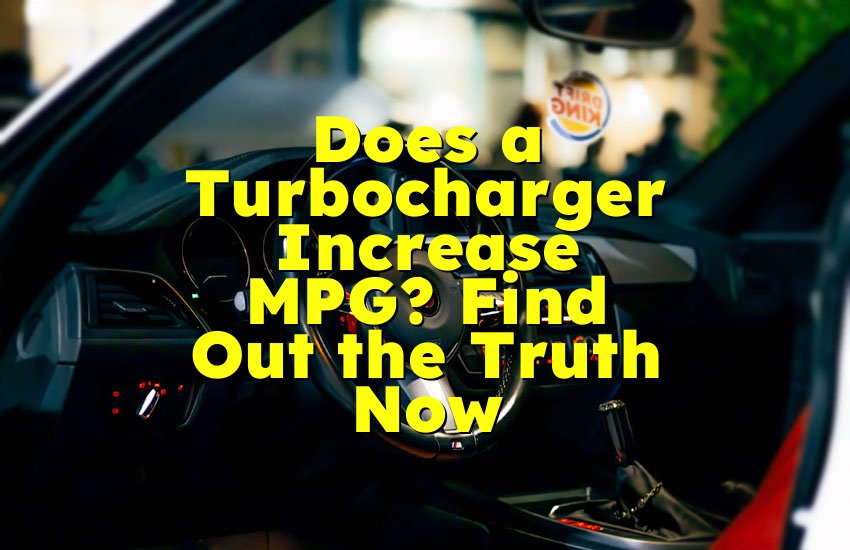As an Amazon Associate, I earn from qualifying purchases at no extra cost to you.
Does a Supercharger Reduce Gas Mileage? Find Out Now!
When I first added a supercharger to my car, I immediately noticed the power boost. But I also started wondering about gas mileage. The quick answer is yes, a supercharger can reduce gas mileage because it makes your engine work harder and use more fuel.
In this article, I will explain why this happens, how much it affects your car, and what you can do to manage it. By the end, you’ll clearly understand the impact on fuel efficiency and ways to drive smarter.
How a Supercharger Works and Its Effect on Fuel
A supercharger is a device that pushes more air into your engine. More air means more fuel is needed for combustion. When the engine burns more fuel, it produces more power. This is why your car accelerates faster. At the same time, this also uses more gas.
Superchargers are different from turbochargers. They are driven by a belt connected to your engine. This belt uses some engine power, which can slightly lower efficiency even when you are not accelerating. However, the main reason for reduced gas mileage is the extra fuel needed when the supercharger is active.
Using a supercharger is fun for speed lovers. But it changes the way your car uses fuel. Even gentle driving may see a small drop in mileage. When you push your car hard, the fuel use jumps significantly. Learning how it works helps you manage your driving better.
Some cars are tuned to handle superchargers more efficiently. Modern systems can adjust fuel delivery depending on driving needs. But no matter what, extra air means extra fuel. Understanding this basic principle is key for every car owner.
- A supercharger pushes more air into the engine
- More air means more fuel is burned
- Belt-driven superchargers use engine power
- Fuel consumption rises with harder acceleration
Types of Superchargers and Their Impact on Mileage
Not all superchargers are the same. There are three main types: roots, twin-screw, and centrifugal. Each type affects gas mileage differently. Roots superchargers give immediate boost but use more fuel. Twin-screw superchargers are efficient but still increase fuel use. Centrifugal superchargers are better for highway driving with smaller mileage impact.
The way each supercharger delivers air changes how the engine burns fuel. Roots types push air continuously, which keeps fuel consumption high. Twin-screw types compress air more efficiently, reducing wasted fuel. Centrifugal superchargers deliver boost more gradually, which can help maintain better gas mileage during casual driving.
Installation and tuning also matter. A poorly installed supercharger can waste fuel and damage your engine. Professional tuning ensures the engine runs smoothly. The right setup can slightly minimize mileage loss. But any supercharger will always use more gas than a naturally aspirated engine under similar driving conditions.
Understanding the type of supercharger and how it works can help you make better decisions. You can choose a type that balances performance and fuel economy. Learning about each type also helps prevent unnecessary maintenance costs. It is worth investing time in research before adding one to your car.
- Roots superchargers give immediate power but high fuel use
- Twin-screw superchargers are more efficient but still consume more gas
- Centrifugal superchargers impact mileage less at steady speeds
- Proper installation and tuning help reduce fuel waste
Driving Habits That Affect Gas Mileage with a Supercharger
How you drive matters a lot when your car has a supercharger. Hard acceleration burns much more fuel. Frequent stop-and-go driving also reduces gas mileage. Even small habits like speeding or quick lane changes can make a noticeable difference.
Smooth and steady driving can help keep fuel use lower. Using higher gears and avoiding constant throttle changes saves gas. Even with a supercharger, you can improve efficiency by controlling acceleration and deceleration. Braking less aggressively also helps because the engine consumes less fuel when it is not constantly ramping up power.
Many people forget that superchargers make engines thirsty. Over time, drivers can adjust habits to balance power and fuel use. Some modern cars have eco-modes that help limit supercharger boost in normal driving. Learning how to read your car's feedback, like fuel economy displays, guides better decisions.
Fuel quality also matters. Using the correct octane recommended by the manufacturer ensures the engine runs efficiently. Poor fuel choice can increase consumption and reduce performance. Being mindful of how and when you use the supercharger is the simplest way to manage gas mileage.
- Hard acceleration increases fuel use quickly
- Smooth driving helps maintain better mileage
- Eco-modes reduce supercharger impact on gas
- Using recommended fuel prevents extra consumption
Maintenance Tips to Keep Mileage in Check
Maintaining your supercharger and engine is key for efficiency. Dirty air filters reduce airflow, forcing the engine to burn more fuel. Regular oil changes and checking belts keep the supercharger running smoothly. Neglecting maintenance leads to higher fuel consumption.
The supercharger itself may need periodic inspection. Bearings, pulleys, and tensioners should be checked. Any small issue can increase resistance and make the engine work harder. A well-maintained system operates closer to its designed efficiency, saving fuel in the long run.
Using quality fluids and parts is also important. Low-grade oil or worn belts increase engine load and reduce gas mileage. Follow manufacturer recommendations for maintenance schedules. Small investments in care can prevent bigger fuel loss and expensive repairs later.
Remember that consistent checks also improve safety. A failing supercharger can damage the engine severely. By taking a proactive approach, you maintain both performance and fuel efficiency. Maintenance may seem simple, but it has a big impact on your daily driving experience.
- Keep air filters clean for proper airflow
- Change oil regularly and check belts
- Inspect bearings, pulleys, and tensioners
- Use quality fluids and parts for efficiency
Tuning and Engine Modifications for Better Fuel Efficiency
Tuning a supercharged engine affects both performance and gas mileage. Adjusting fuel maps and ignition timing can improve efficiency. Some tuners offer programs that limit boost when full power is not needed. This helps maintain reasonable fuel use.
Engine modifications like better exhaust systems or intake upgrades can also help. A free-flowing system reduces engine strain, which can save some gas. However, aggressive tuning for maximum power always increases fuel consumption. Finding a balance is key.
Electronic control units (ECUs) in modern cars allow fine adjustments. You can reduce supercharger output in city driving and increase it on highways. This flexibility helps manage mileage without losing the thrill of power. Always have a professional do the tuning to avoid engine problems.
Even small changes in tuning can make a big difference. Optimizing your supercharger and engine together ensures you get power when needed and save fuel when possible. Knowledge of tuning gives drivers control over efficiency and performance.
- Adjust fuel maps and ignition timing for efficiency
- Limit boost when full power is unnecessary
- Upgrade exhaust or intake to reduce engine strain
- Use ECU settings to manage fuel use
Comparing Supercharged and Naturally Aspirated Engines
Naturally aspirated engines do not have forced air systems. They are simpler and usually more fuel-efficient. A supercharged engine uses more fuel for the same performance because it burns extra fuel for added power.
However, supercharged engines offer faster acceleration. Drivers can reach highway speed quicker and carry heavier loads. This added performance comes at the cost of mileage. Depending on driving style, the fuel difference may range from 15% to 30%.
Some people argue that careful driving can narrow this gap. Using cruise control and avoiding aggressive boosts can reduce the impact on gas. Modern supercharged engines are better designed to limit fuel waste, but they still consume more than naturally aspirated engines in most cases.
Understanding the trade-off between power and fuel is important. If you want maximum performance, a supercharger is great. If fuel economy is your top priority, naturally aspirated engines are better. Knowing your priorities helps you choose the right setup for your lifestyle.
- Naturally aspirated engines use less fuel
- Superchargers give faster acceleration and power
- Fuel consumption rises 15%–30% with superchargers
- Driving habits can reduce, but not eliminate, the gap
Final Thoughts
A supercharger gives your car exciting power, but it does reduce gas mileage. How much depends on the type, your driving habits, and maintenance. Smart driving and proper tuning can reduce the impact. Still, extra fuel use is the trade-off for performance. Understanding this helps you enjoy the boost without surprises.
| Action | Effect on Gas Mileage | Notes |
|---|---|---|
| Smooth driving | Better fuel efficiency | Avoid hard acceleration |
| Proper maintenance | Maintains mileage | Check belts and air filters |
| Correct fuel | Reduces waste | Use recommended octane |
| Tuning adjustments | Optimizes balance | Limit boost when not needed |
Frequently Asked Questions (FAQs)
Is it normal for a supercharger to reduce gas mileage?
Yes, it is normal. A supercharger increases air intake, which needs more fuel. Even gentle driving uses extra fuel. How much depends on the type of supercharger and how you drive. Modern cars can adjust fuel delivery to limit loss, but it cannot fully match the efficiency of a naturally aspirated engine. Expect some drop in miles per gallon.
Can I improve gas mileage with a supercharger?
Yes, partly. Driving smoothly, avoiding sudden acceleration, and using higher gears help. Proper tuning also reduces waste. Maintenance like clean air filters and quality oil keeps efficiency higher. While it won't match normal engines, you can lessen the impact. Eco-driving modes in some cars are especially helpful.
Do I need special fuel for a supercharged engine?
Yes. Most supercharged engines require high-octane fuel. Using lower octane reduces efficiency and can cause knocking. Always follow manufacturer recommendations. High-quality fuel ensures smooth operation and better mileage. Poor fuel choice can increase consumption and damage your engine over time.
Is supercharger maintenance different from a normal engine?
Yes, a bit. You need to check belts, pulleys, and bearings more often. Oil quality matters, and air filters must be clean. Neglecting these parts increases fuel use and can damage the supercharger. Regular inspection keeps both performance and efficiency high.
Can aggressive driving damage gas mileage more?
Absolutely. Rapid acceleration and frequent high-speed driving burn a lot of fuel. Superchargers amplify this effect because the engine consumes extra fuel for boost. Gentle driving and careful use of boost limits fuel loss. Habits make a bigger difference than the supercharger type itself.
Do I lose a lot of fuel at highway speeds?
Not as much as city driving. Steady highway driving uses less boost. Centrifugal superchargers have smaller impact at constant speed. Roots and twin-screw types still use more fuel but less aggressively. Using cruise control helps maintain better gas mileage.
Can tuning affect both performance and fuel efficiency?
Yes, it can. Proper tuning balances power and fuel use. Limiting boost when full power is not needed saves fuel. Aggressive tuning for maximum power increases consumption. A professional tuner can set up your engine for both fun and efficiency.
Is it worth installing a supercharger despite reduced gas mileage?
It depends on your goals. If you want speed and acceleration, it is worth it. Fuel loss is the trade-off for performance. If economy is your main priority, it may not be the best choice. Knowing the costs and benefits helps make the right decision.











